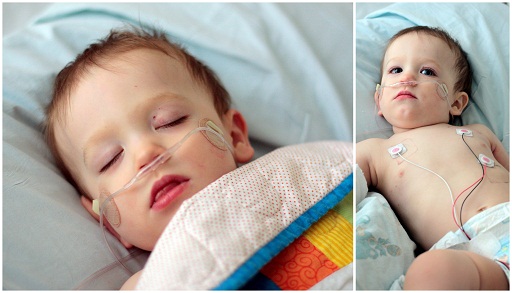Worldwide 13 million babies are born early every year, half a million of them in the United States and prematurity is still the leading cause of neonatal death. Many parents aren’t aware of the definition of prematurity – birth before 37 weeks gestational age – and therefore don’t understand the risks and the solutions.
Those last few weeks spent in a mother’s womb are crucial to neonatal development, particularly the lungs and immune system. Consequently, premature infants are at greater risk for infection and respiratory problems.
RSV is the leading cause of infant hospitalization – it is passed easily from child to child and often causes only minor symptoms in young children. For premature babies or those with other risk factors (asthma, low birth weight, or frequent contact with other children), the results can be very serious and sometimes fatal. In fact, RSV causes up to 10 times as many deaths each year as the flu.
I’ve shared my story before but I will share it again and hope it helps keep at least one family from experiencing what we did.
When Gus was 8 months old he got sick – it seemed like a regular cold at first with a stuffy nose, some coughing. We went to sleep one night and when we woke up and I tried to nurse him, I knew something was seriously wrong.
His skin was pale, his lips slightly blue, and he would not nurse. His whole body heaved with the effort of sucking in breath and he couldn’t expend the energy to eat. As he continued to lay motionless, struggling to breathe we packed up and headed to the after hours clinic (it was a Saturday).
The doctor tested his oxygen, x-rayed his chest for pneumonia, said he had a cold but was fine.
We went home.
I knew it was more serious than a regular cold, I had never seen a baby be so pale and still. About an hour later he had not improved. We took him straight to the emergency room and didn’t even finish signing in before they rushed us back and we were swarmed with doctors and nurses.
It got worse from there – he nearly died about 8 hours later when his oxygen plummeted, his heart rate skyrocketed, and his breathing was impossibly labored. There were a dozen nurses and respiratory specialists in our room at once, some of them saying his heart couldn’t keep going as it was for long. They discussed flying him to the children’s hospital in Salt Lake City and were ready to do it when he slowly started improving.
My son had asthma – that was all it took, an infant with asthma, for his regular cold turn into an illness that nearly took his life. And we possibly could have prevented it with a little care and knowledge that I want to share with you.
Prevention is Key
There is no treatment for RSV, so take the preventive measures:
- Wash hands, toys, bedding, and play areas frequently
- Ensure you, your family, and any visitors in your home wash their hands or use hand sanitizer
- Avoid large crowds and people who may be sick
- Never let anyone smoke near your baby
- Speak with your child’s doctor if you believe he or she may be at high risk for RSV, as a preventive therapy may be available
Be Aware of Symptoms:
- Persistent coughing or wheezing
- Rapid, difficult, or gasping breaths
- Blue color on the lips, mouth, or under the fingernails
- High fever
- Extreme fatigue
- Difficulty feeding
Visit RSVProtection.com for more information and during this month of Preemie Awareness and for the rest of the RSV season, please be aware and cautious with your family’s health. A little bit of effort can go a long way to keeping your children healthy and safe.
“I wrote this review while participating in a campaign for Mom Central Consulting on behalf of MedImmune and I received a promotional item to thank me for my participation.”




